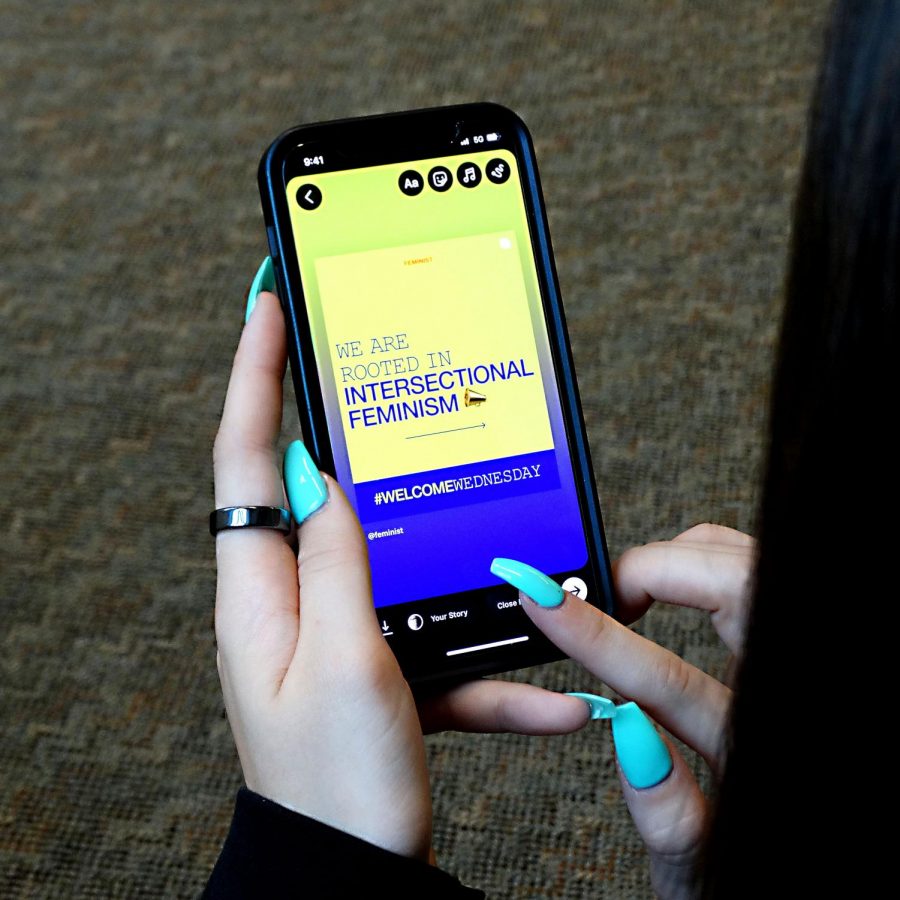Social Media Activism
October 7, 2021
From puppies and vacation pictures to calls for social justice, you can find pretty much anything on social media. A shocking number of people use social media as their main source of news. Although social media platforms like Instagram, TikTok, and Twitter are effective ways to spread information, anyone can post anything on social media, resulting in a lot of misinformation. Social media activism is revolutionary in many ways, but do the benefits outweigh the negative aspects? Social media is an effortless way to reach millions of people, but misinformation can reach just as many people. With all of this information, must students filter information and decide what is reliable.
Sophomore Jeena Roy says that “you can double-check information you’ve found on social media with a reliable news source.” If you are unsure about information that you have found on social media, do not share it. You should always look at multiple sources. Junior Rama Bah says, “[Teens should] do their research. Don’t believe everything you see on Instagram; it might be wrong. Misinformation affects more people than you would think, freshman Kamron Norambuena states, “I think if you spread misinformation, your account should be deleted. At the end of day there are people who believe everything they see, and they will take that false information to build an argument.”
Many social media activists claim that social media activism is just as valid as “real” activism. Do the affected causes agree? Junior Spencer Blumenthal says social media is “sadly becoming a replacement for ‘real’ activism.” Another issue is performative activism. While performative activism does still spread awareness, there are usually no resources like petitions, protests in the area, donation links to directly help the cause. Performative activism has become more and more trendy. Sophomore Brooklyn D’Souza states, “Last year for example, with the Black Lives Matter protests, a lot of people were posting black squares. This didn’t actually do anything. They weren’t signing any petitions. They were only posting this to fit in with everyone else around them.” A lot of people use performative activism to pretend they are good.
There is also a lot of pressure on celebrities and influencers to talk about these issues, even if they are not educated on the topic at hand. If the celebrity is actually educated, then their voice will have an impact. A lot of people will hear about the cause because of the celebrity’s large platform, and people are more likely to donate or sign petitions if their favorite celeb told them to. On the flip side, if the celebrity starts talking about social issues just because of pressure from their online audience, the information is highly likely to be performative. These celebrities just want to keep their fans and large following, and if that means taking five seconds to post a hashtag, they are all for it. Since these influencers do not care about the issue, they most likely have not researched what the posts that they are uploading means. If a celebrity shares incorrect information on their public social media account, they have just misinformed millions of people.
Even though there are many risks to social media, there are still many benefits. An article from Forbes argues that social media activism or “slacktivism” is not good enough: “For some, it’s the laziest form of activism. On social media, ‘slacktivists’ express their support for a cause by changing a profile image, retweeting a sentiment, or deploying a trending hashtag.” Although social media might be a “lazy” way to share activism, social media can be a valuable resource for teens whose parents do not want them to go to protests and rallies, especially during the COVID-19 pandemic. Although social media might not be the best way to share ideals, there is not a blatant outline for what is right or wrong when it comes to activism. Bah suggested that there are multiple ways to be an activist that do not include the danger of facing COVID-19: “There is performative activism and then there is actual activism that uses social media to share ideas, to encourage change, people can sign petitions and call their representatives.”
While most people think teens are the only ones who participate in social media activism, a lot of adults do too. A study from the Pew Research Center shows that “taken together, 53% of U.S. adults have engaged in at least one of these activities on social media in the last year.” These activities, being sharing a post, infographic, or hashtag. It is typically a stereotype that only teenage girls use social media to share activism, but many other people do too. People of all genders, races, political parties, and social statuses use social media to communicate their views, ideas, and rallies/protests. The study from the Pew Research Center shows that race also factors into how often a person uses social media to share activism, “For instance, black social media users are more likely than whites to say these sites are very or somewhat important to them for finding others who share their views about important issues (54% vs. 39%).”
Many things factor into how social media activism affects people and causes. Like every topic, there are pros and cons to slacktivism. There are many ways to help people with or without social media. If you genuinely care about activism, social media is an effective way to share information and awareness.



